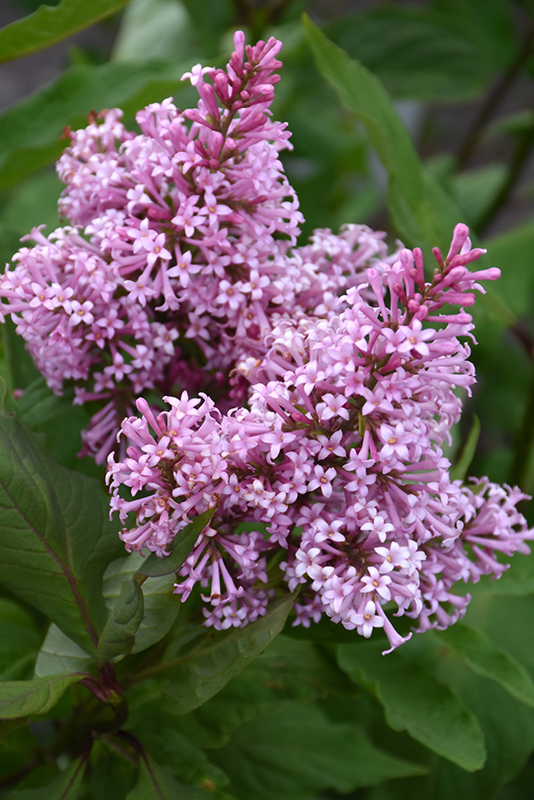James McFarlane Preston Lilac
Syringa x prestoniae 'James MacFarlane'
Height: 10 feet
Spread: 6 feet
Sunlight:
![]()
Hardiness Zone: 2a
Group/Class: Preston Lilac
Description:
A very attractive and hardy tall accent shrub with upright panicles of lightly fragrant pink flowers in late spring; multi-stemmed and upright, forms a large ball; a superb specimen plant; full sun and well-drained soil; non-suckering
Ornamental Features
James McFarlane Preston Lilac features showy panicles of lightly-scented hot pink flowers rising above the foliage in late spring. It has forest green deciduous foliage. The pointy leaves turn buttery yellow in fall.
Landscape Attributes
James McFarlane Preston Lilac is a multi-stemmed deciduous shrub with an upright spreading habit of growth. Its relatively coarse texture can be used to stand it apart from other landscape plants with finer foliage.
This is a relatively low maintenance shrub, and should only be pruned after flowering to avoid removing any of the current season's flowers. It is a good choice for attracting butterflies to your yard. It has no significant negative characteristics.
James McFarlane Preston Lilac is recommended for the following landscape applications;
- Accent
- Mass Planting
- Hedges/Screening
- General Garden Use
Planting & Growing
James McFarlane Preston Lilac will grow to be about 10 feet tall at maturity, with a spread of 6 feet. It tends to be a little leggy, with a typical clearance of 3 feet from the ground, and is suitable for planting under power lines. It grows at a medium rate, and under ideal conditions can be expected to live for approximately 30 years.
This shrub should only be grown in full sunlight. It is very adaptable to both dry and moist locations, and should do just fine under average home landscape conditions. It is not particular as to soil type or pH. It is highly tolerant of urban pollution and will even thrive in inner city environments. This particular variety is an interspecific hybrid.



